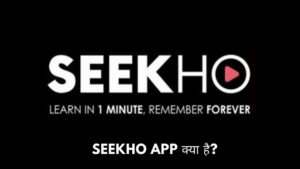क्या आप भी रोज सुबह उठकर यही सोचते हैं कि आज कुछ अलग करूंगा?
- मैंने क्यों पढ़ी यह Book?
- Habit 1: Be Proactive – जिम्मेदारी लेना सीखें
- Reactive vs Proactive People में फर्क
- Circle of Concern vs Circle of Influence
- Real Example
- 💖 You Might Also Like
- Habit 2: Begin with the End in Mind – Goal Setting की Real Power
- आपका Personal Mission Statement क्या है?
- Funeral Test
- My Personal Experience
- Habit 3: Put First Things First – Time Management का Master Formula
- Urgent vs Important Matrix
- जहां Most People Fail करते हैं
- Quadrant 2 Activities Examples
- Weekly Planning System
- Habit 4: Think Win-Win – Relationship Building का Secret
- 6 Types of Human Interaction
- Win-Win Mindset कैसे Develop करें
- Business Example
- ✨ More Stories for You
- Habit 5: Seek First to Understand, Then to Be Understood – Communication का Golden Rule
- Most People की Biggest Mistake
- 4 Levels of Listening
- Empathetic Listening Techniques
- My Marriage Example
- Habit 6: Synergize – 1+1=3 का Math
- Synergy क्या है?
- Synergy के लिए जरूरी है:
- Team Project Example
- Habit 7: Sharpen the Saw – अपने आप में Investment
- Saw Sharpening की Story
- 4 Dimensions of Renewal
- Balance का Importance
- My Daily Renewal Routine
- 🌟 Don't Miss These Posts
- सारी Habits को Together कैसे Apply करें?
- Inside-Out Approach
- Progressive Development
- मेरा Implementation Journey
- Common Mistakes और कैसे Avoid करें
- Mistake 1: Perfectionism
- Mistake 2: All or Nothing Mentality
- Mistake 3: External Motivation Dependency
- Mistake 4: Quick Fix Expectation
- Frequently Asked Questions (FAQs)
- क्या यह book सिर्फ business professionals के लिए है?
- कितने time में results दिखेंगे?
- अगर मैं कोई habit maintain नहीं कर पा रहा तो क्या करूं?
- क्या यह habits Indian culture में work करती हैं?
- Family members cooperate नहीं कर रहे implementation में?
- Success Stories और Real Examples
- Case Study 1: Student Life
- Case Study 2: Marriage
- Case Study 3: Business
- Implementation Checklist
- Week 1-2:
- Month 1:
- Month 2-3:
- Month 4-6:
- Month 7-12:
- Final Thoughts: Habits of Highly Effective People समरी हिंदी से Life Transform करें
फिर शाम तक वही पुराना routine चलता रहता है?
मैं भी यही सोचता था।
तब तक Stephen Covey की “7 Habits of Highly Effective People” मेरे हाथ नहीं लगी थी।
मैंने क्यों पढ़ी यह Book?
दो साल पहले मैं exactly वही था जो आप हो सकते हैं।
हमेशा busy but कुछ खास नहीं achieve कर रहा था।
Goals बनाता था लेकिन follow through नहीं कर पाता था।
Stress में रहता था।
Relations में problems थीं।
Then someone recommended this book.
मैंने socha – “अरे यार, एक और self-help book.”
But मैं गलत था।
Habit 1: Be Proactive – जिम्मेदारी लेना सीखें
Reactive vs Proactive People में फर्क
Reactive लोग कहते हैं:
- “मेरे boss की वजह से मैं परेशान हूं”
- “Traffic की वजह से late हो गया”
- “Government corrupt है इसलिए कुछ नहीं हो सकता”
Proactive लोग कहते हैं:
- “मैं अपनी response choose करूंगा”
- “मैं solutions पर focus करूंगा”
- “मैं अपना circle of influence बढ़ाऊंगा”
Circle of Concern vs Circle of Influence
यहां game changer concept है।
Circle of Concern में होते हैं:
- Weather
- Economy
- Other people’s behavior
- Past mistakes
Circle of Influence में होते हैं:
- Your habits
- Your skills
- Your attitude
- Your responses
Effective people अपना 90% energy Circle of Influence पर spend करते हैं।
Real Example
मेरा एक friend था Raj।
हमेशा complain करता था कि uske office में politics है।
“Boss favoritism करता है,” he would say.
मैंने उसे यह concept explain किया।
“Raj, तू boss को change नहीं कर सकता। But तू अपना work quality improve कर सकता है।”
“तू networking skill develop कर सकता है।”
“तू दूसरी opportunities explore कर सकता है।”
6 months later, Raj got promoted.
Why?
Because वो reactive से proactive बन गया था।
💖 You Might Also Like
Habit 2: Begin with the End in Mind – Goal Setting की Real Power
आपका Personal Mission Statement क्या है?
Most people जिंदगी में भटकते रहते हैं।
No clear direction.
No clear values.
Covey कहता है – पहले decide करो कि तुम्हें क्या बनना है।
फिर काम शुरू करो।
Funeral Test
यह weird लग सकता है but powerful है।
Imagine करो – आपका funeral है।
4 speakers हैं:
- Family member
- Close friend
- Work colleague
- Community member
They are describing आपकी life और contribution।
आप क्या चाहते हैं वो कहें?
This is your mission statement.
My Personal Experience
जब मैंने यह exercise की, मुझे realize हुआ:
मैं चाहता था लोग कहें:
- “वो हमेशा दूसरों की help करता था”
- “उसने अपनी family को priority दी”
- “वो honest था”
But मेरी current lifestyle इससे match नहीं कर रही थी।
मैं workaholic बन गया था।
Family time sacrifice कर रहा था।
तब मैंने अपने priorities realign किए।
Habit 3: Put First Things First – Time Management का Master Formula
Urgent vs Important Matrix
यह है game changer।
सारे काम 4 quadrants में divide होते हैं:
Quadrant 1: Urgent + Important
- Crisis
- Emergency meetings
- Last minute deadlines
Quadrant 2: Not Urgent but Important (GOLDEN ZONE)
- Planning
- Skill development
- Health और fitness
- Relationship building
- Prevention
Quadrant 3: Urgent but Not Important
- Phone calls
- Emails
- Interruptions
Quadrant 4: Neither Urgent nor Important
- Social media scrolling
- TV watching
- Time wasting activities
जहां Most People Fail करते हैं
90% लोग Quadrant 1 और 3 में फंसे रहते हैं।
Quadrant 2 ignore करते हैं।
But Quadrant 2 ही है जो आपकी life change करता है।
Quadrant 2 Activities Examples
Career में:
- New skills सीखना
- Network building
- Industry trends study करना
- Personal branding
Health में:
- Regular exercise
- Proper diet planning
- Preventive health checkups
- Stress management
Relationships में:
- Quality time with family
- Deep conversations with friends
- Gratitude practice
- Conflict resolution skills
Weekly Planning System
मैं अब weekly planning करता हूं, daily नहीं।
Sunday को मैं बैठता हूं और plan करता हूं:
- What are my big rocks (Quadrant 2 activities)?
- कौन से important but not urgent काम हैं?
- Family commitments क्या हैं?
- Self-care activities कब करूंगा?
Then daily scheduling होती है around these big rocks.
Habit 4: Think Win-Win – Relationship Building का Secret
6 Types of Human Interaction
Win-Lose: “मेरा फायदा, तेरा नुकसान” Lose-Win: “चलो मैं compromise कर लेता हूं” Lose-Lose: “अगर मेरा नहीं तो तेरा भी नहीं” Win: “मुझे बस अपना फायदा चाहिए” Win-Win: “दोनों का फायदा हो” Win-Win or No Deal: “या तो दोनों win करें या deal ही न करें”
Win-Win Mindset कैसे Develop करें
Abundance Mentality vs Scarcity Mentality
Scarcity mentality वाले सोचते हैं:
- “Success limited है”
- “अगर वो आगे गया तो मैं पीछे रह जाऊंगा”
- “Competition में सबको हराना है”
Abundance mentality वाले जानते हैं:
- “सबके लिए enough opportunities हैं”
- “दूसरों की success मुझसे कुछ नहीं छीनती”
- “Collaboration competition से better है”
Business Example
मेरे ek client का case था।
वो अपने supplier के साथ हमेशा negotiate करता रहता था।
हमेशा lowest price चाहिए था।
Result – suppliers reluctant थे।
Quality issues आते रहते थे।
Delivery delays होती रहती थीं।
मैंने suggest किया Win-Win approach try करे।
“तुम supplier को reasonable profit margin दो।”
“Long term partnership offer करो।”
“Quality incentives दो।”
6 months later – his supply chain एकदम smooth थी।
Quality improve हुई।
Suppliers खुद innovations suggest करने लगे।
Costs actually कम हो गए long term में।
✨ More Stories for You
Habit 5: Seek First to Understand, Then to Be Understood – Communication का Golden Rule
Most People की Biggest Mistake
हम सुनते नहीं हैं।
हम reply करने की planning करते रहते हैं।
This is not listening.
This is preparing your response.
4 Levels of Listening
Level 1: Ignoring
- Phone में busy
- Mind somewhere else
Level 2: Pretending
- “Hmmm, achha, okay”
- Actually not processing
Level 3: Selective
- Sirf वही सुनना जो आप सुनना चाहते हैं
- Filtering information
Level 4: Empathetic (TARGET)
- Person की feelings understand करना
- Unke perspective से देखना
- Emotional connection बनाना
Empathetic Listening Techniques
1. Reflect Feelings: “Lagta है आप frustrate feel कर रहे हैं…”
2. Rephrase Content: “तो आपका मतलब यह है कि…”
3. Reflect Feeling + Content: “आप worried हैं क्योंकि project deadline tight है…”
4. Ask Clarifying Questions: “आप कह रहे हैं… क्या मैं सही समझ रहा हूं?”
My Marriage Example
Initially मेरी wife से arguments होते रहते थे।
She would share her problems.
मैं immediately solutions देने लगता था।
“यह करो, वो करो, problem solve हो जाएगी।”
She would get more frustrated.
“तुम मुझे समझते ही नहीं हो!”
Then मैंने empathetic listening practice की।
Instead of solutions, मैं feelings reflect करने लगा।
“You’re feeling overwhelmed…”
“It seems like you’re stressed about…”
Magic happened.
She felt heard.
Arguments कम हो गए।
Connection बढ़ गया।
Habit 6: Synergize – 1+1=3 का Math
Synergy क्या है?
When two people collaborate, result सिर्फ 2 नहीं होता।
Sometimes it becomes 10.
Sometimes 100.
This is synergy.
Synergy के लिए जरूरी है:
1. Differences को Value करना
Most people differences से डरते हैं।
“वो मुझसे agree नहीं कर रहा।”
“उसकी thinking अलग है।”
But differences में power है।
अगर हम दोनों same think करते हैं, तो one of us is unnecessary.
2. High Trust
Low trust में synergy impossible है।
People अपने cards छुपाते हैं।
Defensive रहते हैं।
High trust में people खुलकर share करते हैं।
Creative ideas आते हैं।
3. Open Communication
सारे options table पर रखने चाहिए।
No hidden agendas.
Transparent discussion.
Team Project Example
मेरी company में एक project था।
Team में 4 लोग थे completely different backgrounds से।
One was technical expert.
One was creative person.
One was process-oriented.
One was customer-focused.
Initially clash हो रहा था।
Technical guy कह रहा था – “यह technically impossible है।”
Creative person कह रहा था – “हमें innovative solution चाहिए।”
Process guy कह रहा था – “Timeline realistic रखनी चाहिए।”
Customer-focused person कह रहा था – “Customer experience priority है।”
मैंने facilitate किया synergy session.
“चलो सबकी concerns sun लेते हैं।”
“फिर एक solution निकालते हैं जो सबको satisfy करे।”
Result?
हमने एक solution निकाला जो:
- Technically feasible था
- Creatively outstanding था
- Timeline में fit था
- Customer को wow कर देता था
None of us individually यह solution नहीं सोच सकते थे।
This was synergy.
Habit 7: Sharpen the Saw – अपने आप में Investment
Saw Sharpening की Story
एक woodcutter पेड़ काट रहा था।
5 घंटे से काट रहा था but progress slow थी।
एक observer ने कहा – “Your saw looks blunt. Why don’t you sharpen it?”
Woodcutter replied – “I’m too busy cutting trees. No time to sharpen the saw.”
This is most people की story.
4 Dimensions of Renewal
Physical Dimension:
- Exercise
- Proper nutrition
- Stress management
- Adequate rest
Mental Dimension:
- Reading
- Learning new skills
- Writing
- Problem solving
Spiritual Dimension:
- Meditation
- Prayer
- Nature connection
- Value clarification
Social-Emotional Dimension:
- Service to others
- Empathy development
- Synergy practice
- Intrinsic security
Balance का Importance
अगर सिर्फ physical पर focus करोगे, mental dull हो जाएगा।
अगर सिर्फ mental पर focus करोगे, health suffer होगी।
अगर social-emotional ignore करोगे, relationships weak हो जाएंगी।
सभी 4 dimensions में regular investment करनी चाहिए।
My Daily Renewal Routine
Morning (Physical + Spiritual):
- 30 minutes workout
- 10 minutes meditation
During Day (Mental):
- 20 pages reading
- Learning something new
Evening (Social-Emotional):
- Quality time with family
- Helping someone
यह routine maintain करने से मेरी energy levels consistent रहती हैं।
Stress handling better हो गई है।
Relationships improve हुई हैं।
Work performance भी बेहतर हुई है।
🌟 Don't Miss These Posts
सारी Habits को Together कैसे Apply करें?
Inside-Out Approach
Most people outside-in approach try करते हैं।
“अगर मेरी circumstances change हो जाएं तो मैं खुश हो जाऊंगा।”
“अगर दूसरे लोग change हो जाएं तो life अच्छी हो जाएगी।”
But Covey कहता है – start from inside.
पहले अपने character को develop करो।
फिर outside world automatically change होने लगेगी।
Progressive Development
सारी 7 habits एक साथ implement करने की जरूरत नहीं।
Habits 1-3 Private Victory हैं।
पहले खुद को master करना।
Habits 4-6 Public Victory हैं।
फिर दूसरों के साथ effectively काम करना।
Habit 7 सभी habits को sustain करने के लिए।
मेरा Implementation Journey
Month 1-2: Habit 1 पर focus
- Proactive language practice की
- Circle of influence identify किया
Month 3-4: Habit 2 add की
- Mission statement बनाया
- Goals clarify किए
Month 5-6: Habit 3 implement की
- Weekly planning शुरू की
- Quadrant 2 activities prioritize किए
Month 7-8: Habits 4-5 work किया
- Win-win mindset develop किया
- Listening skills improve किए
Month 9-10: Habit 6 practice की
- Team collaborations में synergy focus
Month 11-12: Habit 7 को routine बनाया
- Daily renewal activities establish किए
Common Mistakes और कैसे Avoid करें
Mistake 1: Perfectionism
लोग चाहते हैं कि पहले ही attempt में सब perfect हो जाए।
Reality यह है कि habits building time लेती है।
Solution: Progress पर focus करो, perfection पर नहीं।
Mistake 2: All or Nothing Mentality
“अगर मैं सारी 7 habits perfectly नहीं कर सकता तो कोई फायदा नहीं।”
Solution: Even एक habit का consistent practice powerful है।
Mistake 3: External Motivation Dependency
“जब तक दूसरे change नहीं होंगे मैं क्यों करूं?”
Solution: अपने circle of influence पर focus करो।
Mistake 4: Quick Fix Expectation
“2-3 weeks में results दिखने चाहिए।”
Solution: यह lifestyle change है, quick fix नहीं।
Frequently Asked Questions (FAQs)
क्या यह book सिर्फ business professionals के लिए है?
बिल्कुल नहीं।
यह habits हर person apply कर सकता है।
Students हों, homemakers हों, entrepreneurs हों – सबके लिए applicable है।
कितने time में results दिखेंगे?
Individual habits 21-66 days में form होती हैं।
But overall transformation 6-12 months का process है।
Patience रखना जरूरी है।
अगर मैं कोई habit maintain नहीं कर पा रहा तो क्या करूं?
Small start करो।
Instead of 1 hour exercise, 10 minutes से शुरू करो।
Instead of complicated goals, simple goals रखो।
Consistency over intensity.
क्या यह habits Indian culture में work करती हैं?
हां, absolutely।
Actually Indian culture में already कई यह concepts हैं।
Karma (proactive responsibility), Dharma (values-based living), etc.
Family members cooperate नहीं कर रहे implementation में?
Remember Habit 1 – be proactive.
आप अपना behavior change करो।
Eventually others भी influence होंगे।
Direct उन्हें change करने की कोशिश मत करो।
Success Stories और Real Examples
Case Study 1: Student Life
Rahul – Engineering student
Problem: Procrastination, poor grades, stress
Applied Habits:
- Habit 2: Clear career vision बनाया
- Habit 3: Study schedule में Quadrant 2 activities
- Habit 7: Daily physical exercise और mental stimulation
Result: GPA 6.5 से 8.2 हो गया. Placement में top company मिली।
Case Study 2: Marriage
Priya और Amit – 5 साल marriage, conflicts increasing
Applied Habits:
- Habit 4: Win-win approach arguments में
- Habit 5: Empathetic listening practice
- Habit 6: Synergy in decision making
Result: Marriage counseling से बेहतर results घर पर ही मिले।
Case Study 3: Business
Suresh – Small business owner
Problem: Employee turnover, customer complaints, low profits
Applied Habits:
- Habit 1: Business problems के लिए ownership लेना
- Habit 2: Clear business mission
- Habit 4: Win-win with employees और customers
Result: 18 months में business revenue 40% increase।
Implementation Checklist
Week 1-2:
- [ ] अपना current behavior observe करो
- [ ] Reactive patterns identify करो
- [ ] Circle of influence map करो
Month 1:
- [ ] Personal mission statement draft करो
- [ ] Key roles identify करो
- [ ] Weekly planning system start करो
Month 2-3:
- [ ] Quadrant 2 activities list बनाओ
- [ ] Time audit करो
- [ ] Daily planning routine establish करो
Month 4-6:
- [ ] Win-win agreements practice करो
- [ ] Listening skills develop करो
- [ ] Feedback mechanisms create करो
Month 7-12:
- [ ] Regular renewal routine establish करो
- [ ] Progress tracking system बनाओ
- [ ] Community of support create करो
Final Thoughts: Habits of Highly Effective People समरी हिंदी से Life Transform करें
यह book सिर्फ tips और tricks नहीं है।
यह complete life philosophy है।
मैंने personally experience किया है इन habits की power।
2 साल पहले मैं:
- Reactive था
- No clear direction था
- Relationships में problems थीं
- Stress में रहता था
आज मैं:
- Proactive हूं
- Clear mission और values हैं
- Strong relationships हैं
- Balanced और fulfilled feel करता हूं
यह transformation overnight नहीं हुआ।
Daily consistent practice से हुआ है।
कुछ days अच्छे थे, कुछ challenging थे।
But मैंने continue रखा।
आपको भी continue रखना है।
Start with one habit.
Master करो उसे.
Then next habit add करो.
Remember: Character building एक lifelong journey है।
But हर single day improvement आपको बेहतर person बनाता है।
आपके family को benefit होता है।
आपके career को boost मिलता है।
Society में positive impact करते हैं।
तो क्या आप ready हैं इस journey के लिए?
कौन सी habit से शुरुआत करोगे?
Comment में बताओ और अपना transformation journey start करो।
क्योंकि effective people बनना choice है – और यह choice आपकी है।
यह Habits of Highly Effective People समरी हिंदी आपकी life को transform करने के लिए practical guide है। Regular practice और patience के साथ आप भी highly effective person बन सकते हैं।

















